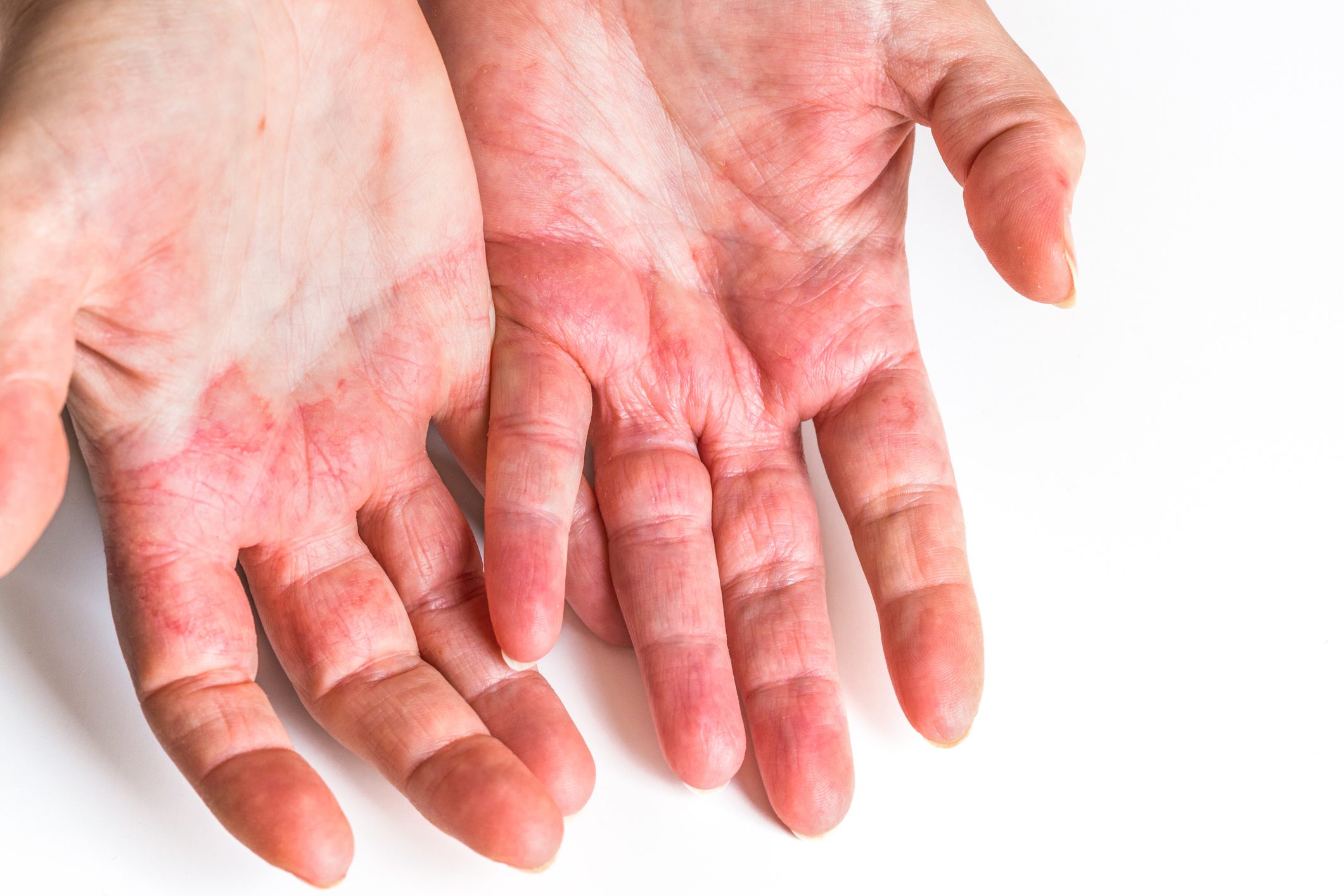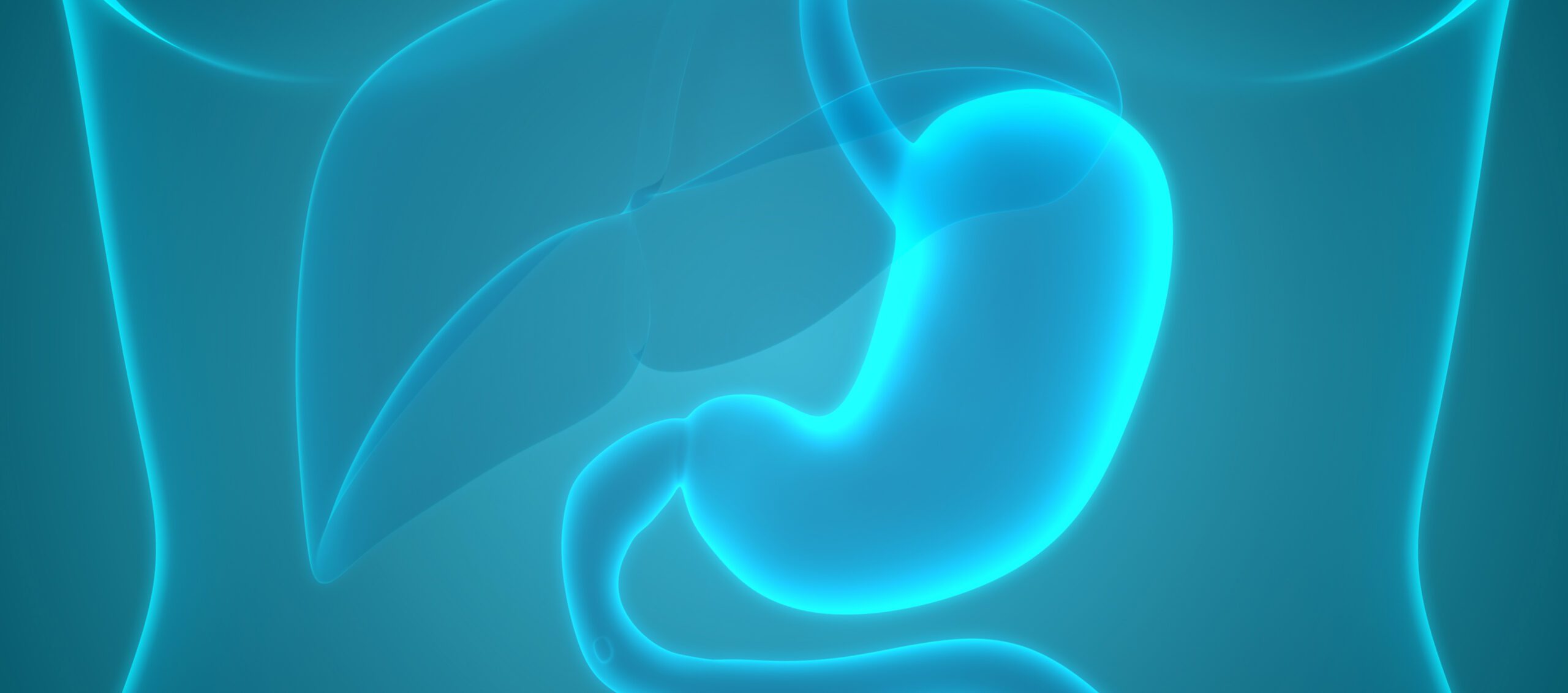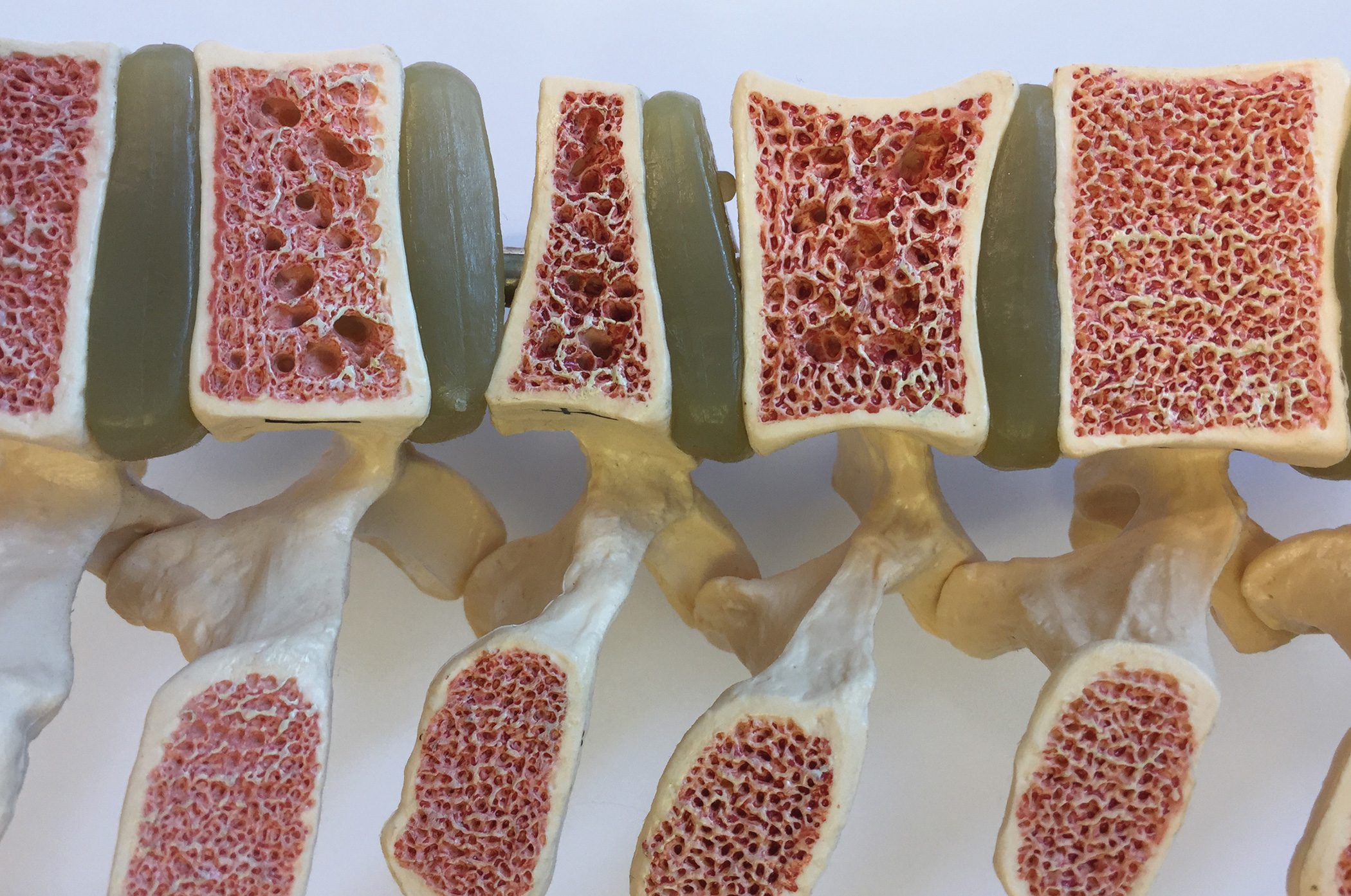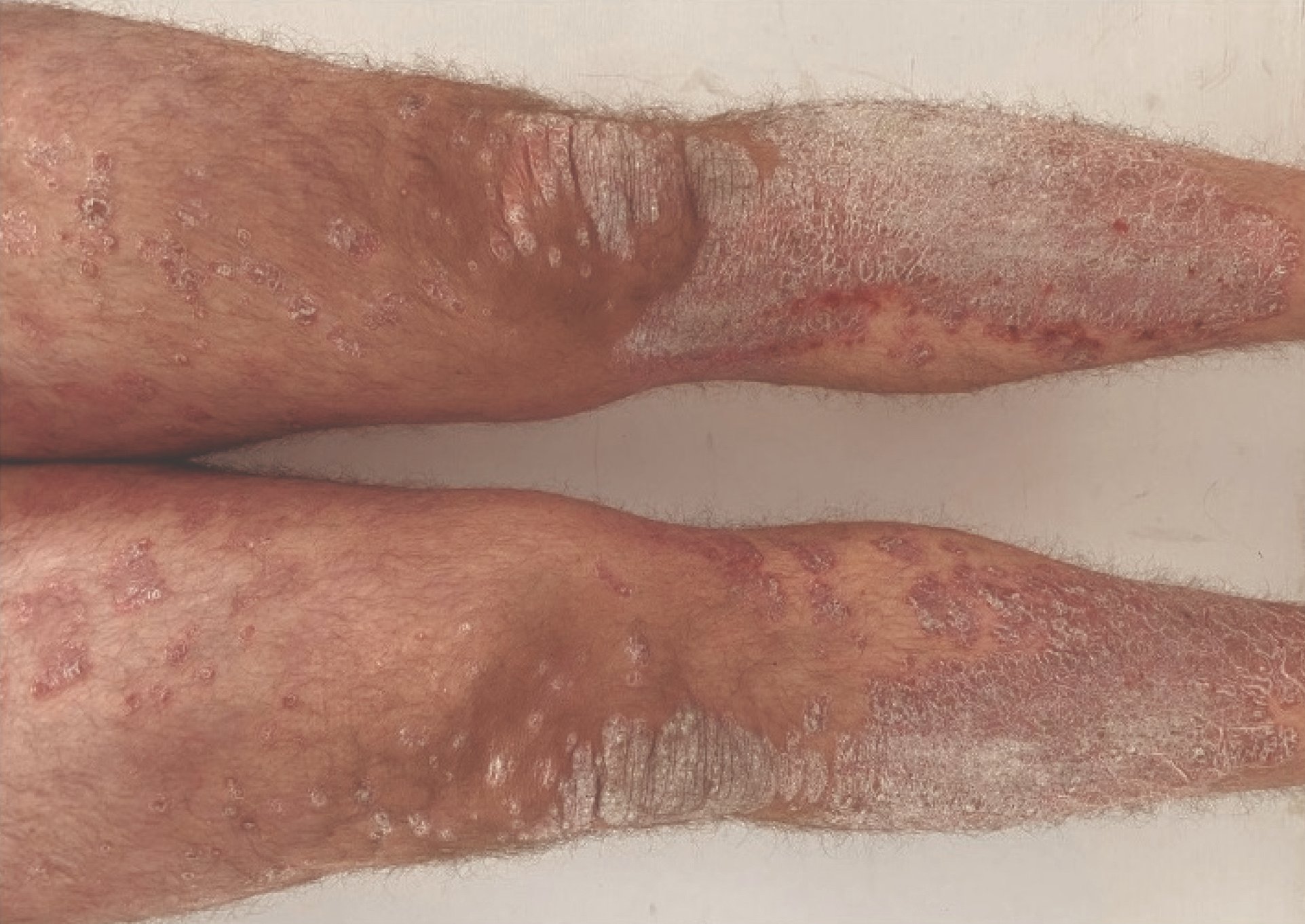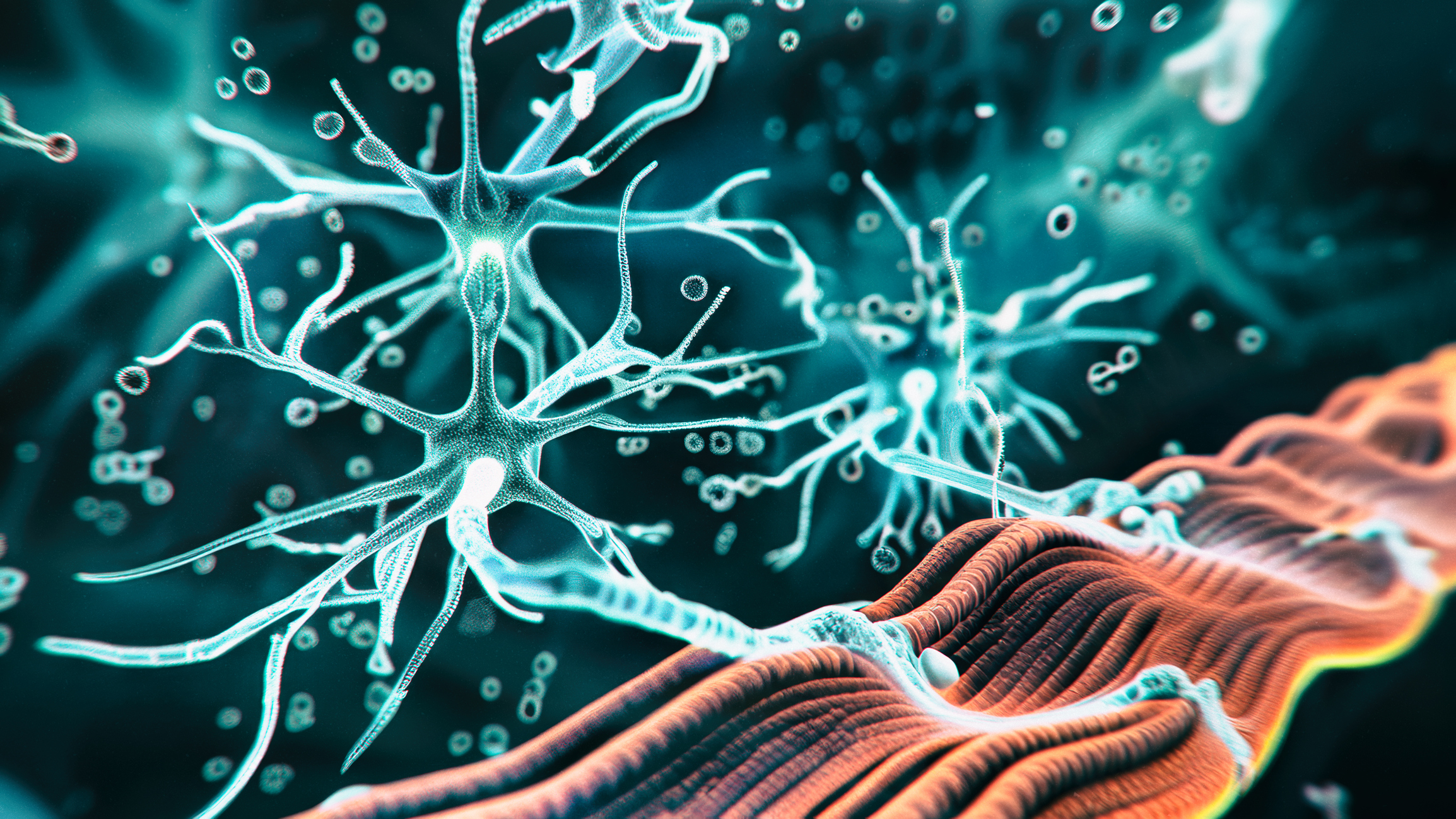Links between autoimmune diseases and vitamin D metabolism are controversially discussed. Several studies showed a negative correlation between the level of 25-(OH)-D3 and TPO antibody levels in patients with autoimmune thyroiditis or immune hyperthyroidism. In patients with vitamin D deficiency, supplementation is suggested.
Autoimmune diseases result from a malfunction of the immune system, whereby environmental influences can also play a role. Numerous empirical studies have demonstrated an association of low 25(OH)D levels with autoimmune thyroiditis [1,2]. And en meta-analysis of 20 case-control studies makes it clear that 25-(OH)-D3 deficiency is common in patients with Hashimoto’s thyroiditis [9]. Decreased levels of 1,25(OH)2 D3 have also been found in patients with immune hyperthyroidism (Graves’ disease) [3]. A study published in 2019 compared serum vitamin D levels in patients with new-onset Graves’ disease (n=84) with an age- and sex-controlled healthy control group (n=42) [4]. This showed that the 25(OH)D concentration in Graves’ disease group was 19.22± ng/ml compared to 23.81 ± 12.46 ng/ml in the healthy control group (p=0.019) [4]. In a meta-analysis including 27 studies, Graves’ disease was associated with more than twice the odds of vitamin D deficiency compared with control subjects (OR=2.24, 95% CI: 1.31-3.81) [5]. In other studies, low 25(OH)D levels were associated with increased TRAK levels, and low 25(OH)D levels were associated with shorter duration of remission in Graves’ disease [6,7]. Moreover, low 25(OH) levels in patients with Graves’ disease were found to be a risk indicator for orbitopathy [8]. Feng et al. were able to show in a secondary analysis that there is a significant correlation between certain vitamin D gene polymorphisms (e.g. BsmI, TaqI) and autoimmune thyroid diseases [17].

Vitamin D exhibits immunomodulatory effects
Vitamin D3 is formed in the skin under the influence of sunlight or UV light, or is absorbed via the small intestine from food or supplements. The liver produces 25-hydroxyvitamin D3 (25[OH]D3), which travels through the bloodstream to the kidney, where it is activated to the hormone form 1,25(OH)2 D3 (calcitriol). Calcitriol, which is produced in the kidney, reaches the endocrine target organs via the circulation like a classical hormone and regulates mineral balance (calcium, phosphate) and bone metabolism [10]. However, the larger fraction of the vitamin D precursor 25(OH)D3 reaches the nonclassical target organs, where it is locally activated by α-hydroxylase to form 1,25(OH)2 D3 (calcitriol), which produces nonclassical effects in an autocrine/paracrine manner (Fig. 1). [10]. In addition to the association of vitamin D with bone health, there is a growing body of empirical evidence on the nonskeletal effects of vitamin D. In the adaptive immune system, which plays an important role in autoimmune diseases, 1,25(OH)2 D3 inhibits the formation of IL-6, TNF-α, IFN-γ, IL-2, IL-1, and also stimulates IL-4 and IL-10 [10]. In this way, 1,25(OH)2 D3, or calcitriol, can attenuate the autoimmune response [10]. This has been shown, for example, in rheumatoid arthritis [10]. Furthermore, calcitriol stimulates the innate immune response, which is relevant, among other things, for the formation of cathelicidin, an important antimicrobial peptide involved in the defense against bacteria.

Address vitamin D deficiency through supplementation
Several studies suggest that vitamin D administration can positively influence the course of autoimmune thyroid diseases [18]. In controlled studies investigating the effect of vitamin D therapy on autoimmune thyroiditis, 1000-4000 IU of vitamin D daily was found to reduce TPO antibody titers by up to 46% [11–13]. Other studies have found a reduction in TSH levels after supplementation [18]. In patients with Graves’ disease, there was a significant correlation with respect to vitamin D levels and thyroid volume and the extent of endocrine orbitopathy. In conclusion, in patients with autoimmune thyroid diseases, existing vitamin D deficiency should be compensated by individual supplementation, but there is no uniform guidance on what the optimal target 25-OH-D3 level is [14].
Literature:
- Kim D: The role of vitamin D in thyroid diseases. Int J of Mol Sci 2017; 18: 1949, 32; Session 1.
- Kmiec P, Sworczak K: Vitamin D in Thyroid Disorders. Exp Clin Endocrinol Diabetes 2015; 123: 386-393.
- Czernobilsky H, et al: Enhanced suppression of 1,25(OH)2D3 and intact parathyroid hormone in Graves’ Disease as compared to toxic nodulara goiter Calcif Tissue Int 1988; 42: 5-12.
- Mangaraj S, et al: Evaluation of vitamin D status and its impact on thyroid related parameters in new onset Graves’ disease – a cross-sectional observational study. Indian J Endocrinol Metab 2019; 23: 35-39.
- Xu MY, et al: Vitamin D and Graves’ disease: a meta-analysis update. Nutrients. 2015;7: 3813-3827.
- Zhang H, Liang L, Xie Z: Low vitamin D status is associated with increased thyrotropin-receptor antibody titer in Graves’ disease. Endocrine Practice 2015; 21: 258-263.
- Ahn HY, Chung YJ, Cho BY: Serum 25-hydroxyvitamin D might be an independent prognostic factor for Graves Disease recurrence. Medicine 2017; 96: 31.
- Heisel CJ, et al: Serum vitamin D deficiency is an independent risk factor for thyroid eye disease. Ophtalmic Plast Reconstr Surg 2020; 36: 17-20.
- Wang J, et al: Meta-analysis of the association between vitamin D and autoimmune thyroid disease. Nutrients 2015;7(4): 2485-2498.
- Scharla SH: Environmental influences in autoimmune thyroid disease-vitamin D, smoking, alcohol. www.infoline-schilddruese.de, (last accessed 28.09.2022)
- Chaudary S, et al: Vitamin D supplementation reduces thyroid peroxidase antibody levels in patients with autoimmune thyroid disease: An open-labeled randomized controlled trial. Indian J Endocrinol Metab 2016; 20(3): 391-398.
- Mazokopakis E, et al: Is vitamin D related to pathogenesis and treatment of Hashimoto’s thyroiditis? Hell J Nucl Med 2015; 18(3): 222-227.
- Simsek Y, et al: Effects of vitamin D treatment on thyroid autoimmunity. J Res Med Sci 2016; 21. 85
- “Metabolism fine-tuned: How Micronutrients Affect Thyroid Function,” www.deutsche-apotheker-zeitung.de/daz-az/2017/daz-7-2017/stoffwechsel-fein-justiert, (last accessed Sept. 28, 2022).
- Khan SZA, et al: Minerals: An Untapped Remedy for Autoimmune Hypothyroidism? Cureus 2020; 12(10): e11008.
- Köstenberger S: The importance of selected micronutrients in the therapy of Hashimoto’s thyroiditis. Thesis 2019, https://unipub.uni-graz.at/obvugrhs/download/pdf/3948232?originalFilename=true, (last accessed Sept. 28, 2022)
- Feng M, et al: Polymorphism in the vitamin D receptor gene and risk of autoimmune thyroid disease: A meta-analysis. Endocrine 2013; 43: 318-326.
- Galusca D, et al: Vitamin D Implications and Effect of Supplementation in Endocrine Disorders: Autoimmune Thyroid Disorders (Hashimoto’s Disease and Grave’s Disease), Diabetes Mellitus and Obesity. Medicina (Kaunas) 2022; 58(2): 194.
HAUSARZT PRAXIS 2022; 17(10): 24-26
CARDIOVASC 2022; 21(4): 48






